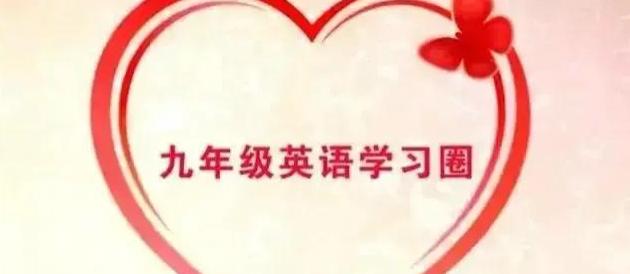视频推荐
- 1、初中英语考点词汇,care 及其相关词组短语用法小结[07:00]
- 2、care的用法以及所组成的词组辨析[06:12]
- 3、中考英语考试必考单词与单词短语-care单选完型阅读通用提分必备[00:28]
- 4、care 短语知多少?#英语 #英语谁不会[00:42]
- 5、初中英语语法:有关Care和Favor的两个短语,你知道是什么意思吗[02:45]
- 6、中学英语考点词汇care及其构成词组[03:02]
步骤/方法

1.calm/ quiet
Ⅰ.calm的意思是平静的、镇静的。用以指天气、海洋等时,表示一种无风无浪的平静状态;用以指人时,表示镇静而不激动的心情。如:
① The sea is now calm. 海上现在风平浪静。
② He remained calm. 他保持镇静。
Ⅱ.quiet的意思是安静的、寂静的,指没有什么动态,没有什么声音,尤指没有骚乱的一种安静状态。如:
① Everything was quiet. 万籁俱寂。
② Ask them to keep quiet. 叫他们保持安静。
2.can/ be able to
Ⅰ. can “能”表过去或现在“能力所及”时,与be able to 通用。如:
① He can / is able to speak German. 他会说德语。
② He could / was able to run very fast when I was a boy. 我小时候就跑得很快。
Ⅱ. be able to 的过去时还可表一种“经过努力做到了”的意思。而can的过去时则没有这种意义。如:
He started late, but he was able to catch the eight o’clock train. 他出发晚了,但他还是赶上了八点钟的火车。
Ⅲ.can 通常只用于上述两种时态,而be able to 则可用于各种时态。如:
He has not been able to come since he got hurt.自从受伤以后,他就一直未能前来。
Ⅳ. 在表猜测时,只能用can,而不能用be able to ,如:
That can’t be your bag. 那不可能是你的书包。
3.can/ may
Ⅰ.can的意思是能、会;可能。在正式用语中can通常是指能力而言。它也可以表示可能性。在非正式用语和口语中can经常用以表示“允许”的意思,特别在疑问句和否定句中。如:
① Can you swim across the Yangzi River? 你能横渡扬子江吗?
② He can speak English. 他会说英语。
③ I can’t come at that time. 我不能在那个时候来。
④ Can the news be true? 这消息会是真的吗?
⑤ -----Can’t I go? 我可不可以走?
-----You cannot! 你不可以走。
Ⅱ.may的意思是可以、可能,在正式用语中它通常是指可能性或允许而言。如:
① That may or may not be ture. 那可能是真的,也可能不是真的。
② He may be right. 他可能是对的。
③ You may take this book, I don’t need it. 你可以拿走这本书,我不需要了。
④ May I go now? 我现在可以走了吗?
4.cap/ hat
Ⅰ.cap的意思是帽子,通常指无边的帽子,包括便帽、制服帽、军帽等。如:
① He always wears a blue cap. 他总是戴着一顶蓝帽子。
② How I wished I could have a cap, a real soldier’s cap! 我多么想要一顶帽子,一顶真正的军帽!
Ⅱ.hat的意思也是帽子,指有边的帽子,也是帽子的总称。如:
① Hat in hand , he came towards me. 他手拿着帽子,向我走来。
② These hats are in fashion. 这些帽子很时髦。
5.care (about) / take care of/ care for
Ⅰ.take care of“照料=look after,即指喂饭照看等。如:
① Nurses take care of patients in hospital.
:在美国,杂货商店(铺)叫grocery 或drugstore.
Ⅱ. shop “商店、店铺”,在英国,零售商店一般都叫shop.如:
① The shop opens at eight o’clock. 商店八点钟开门。
② The shop sells embroideries.那家商店出售刺绣品。
Ⅲ. store“商店、店铺”,在美国,零售店一般叫store. 如:
① He keeps a store in New Youk. 他在纽约开了一个商店。
② The wares in that store are dear. 那家店里的东西很贵。
38.desire/ wish/ want/ hope/ expect
Ⅰ. desire 表“想、希望”等意。着重表强烈的愿望,热切的心情。如:
① I desired to see you. 我很想见见你。
② He desired success. 他渴望成功。
Ⅱ. wish 语气不如desire 强,且可以表示一种不能实现的愿望,(从句动词有虚拟语气形式);后接“不定式”或“代词/名词+不定式”结构。所表示的“希望”大体是可以实现的;此外,还可以接双宾语,表“祝愿”或表委婉的语气。如:
① I wish I could fly to the moon in a spaceship one day. 但愿有一天我能坐宇宙飞船飞向月球。
② I wish I were you.但愿我是你就好了。
③ We wish to visit Yanan. 我希望能参观延安。
④ We wish you to be happy. 我希望你幸福。
⑤ I wish you a long life. 祝你长寿。
⑥ I wish you success. 祝你成功。
⑦ We can begin to work at once now if you wish(不及物动词)要是你愿意,我们现在可以立刻开始工作。
Ⅲ. want “想”其搭配关系为:want to do sth. Or want sb to do sth. 比较口语化,没有wish那样正式。如:
She wants me to do with her.
Ⅳ. hope 表对愿望的实现抱有一定的信心。后接“不定式;that 从句。”但不能接 双宾语。
① I hope to be a doctor. 我希望当一名医生。
② I hope she will be well again. 我希望她会痊愈。
Ⅴ.expect “期待、盼望、预料”等,指对某一特定的事件的发生抱有颇大的信心。如:
① We are expecting a letter from her. 我们当时正期待着她的来信。
39.desk/ table
Ⅰ. Desk “课桌、书桌、写字台”指读书、写字或办公用的桌子。如:
There are fifty desks in the classroom. 教室里有50张课桌。
Ⅱ. table “桌子、台”,指供吃饭、游戏、工作或安放其他各种东西的桌子或台子。它的广义包括desk在内。如:
We all sat at the same table. 我们同桌吃饭。
10. develop/ developing/ developed
Ⅰ.develop既是及物动词,又是不及物动词,意为“发展”,“开发”。如:
The child is developing well. 这孩子发育很好。
Ⅱ.developing为现在分词,起形容词的作用,表示主动意义,意思是“发展中的”。如:
① China is a developing country. 中国是一个发展中国家。
Ⅲ.developed为过去分词,起形容词作用,表示被动含意,意思是“发达的”。如:
Japan ia a developed country. 日本是一个发达国家。
